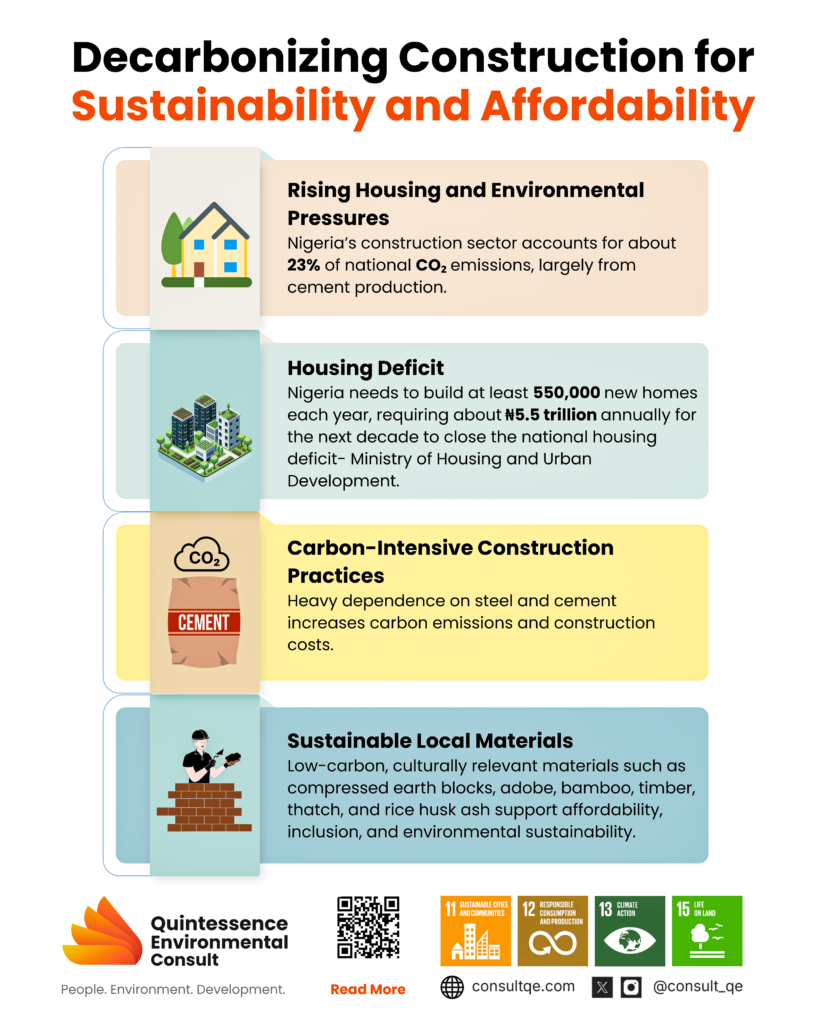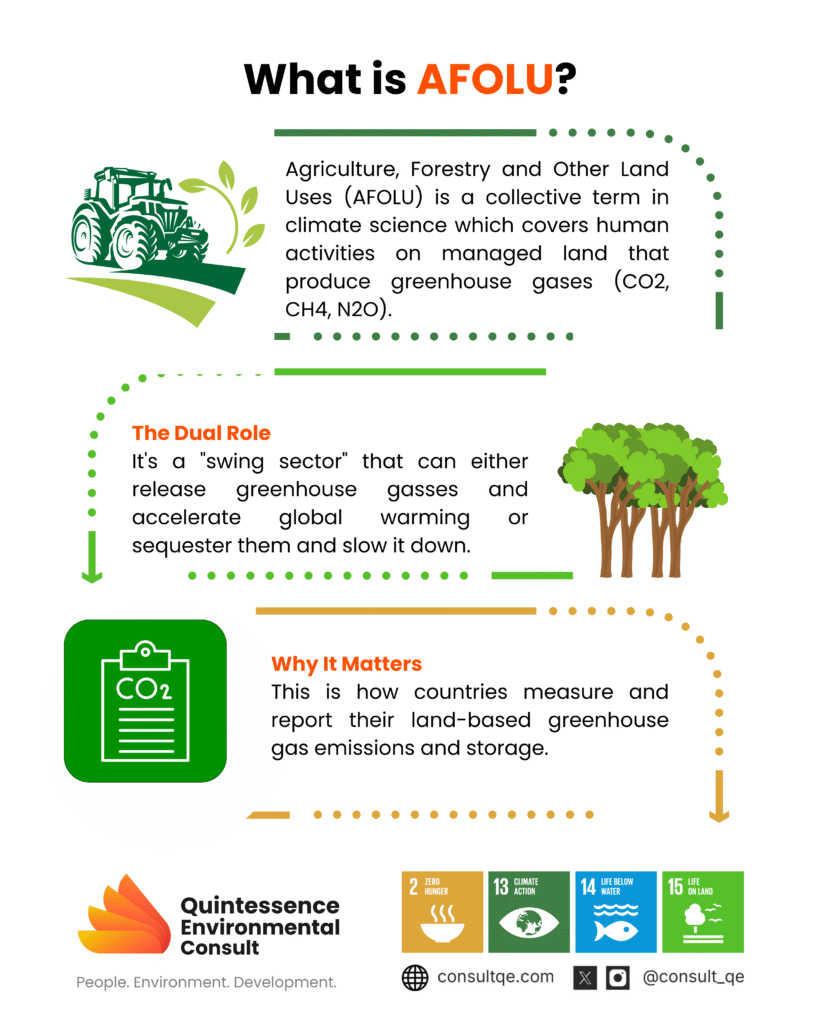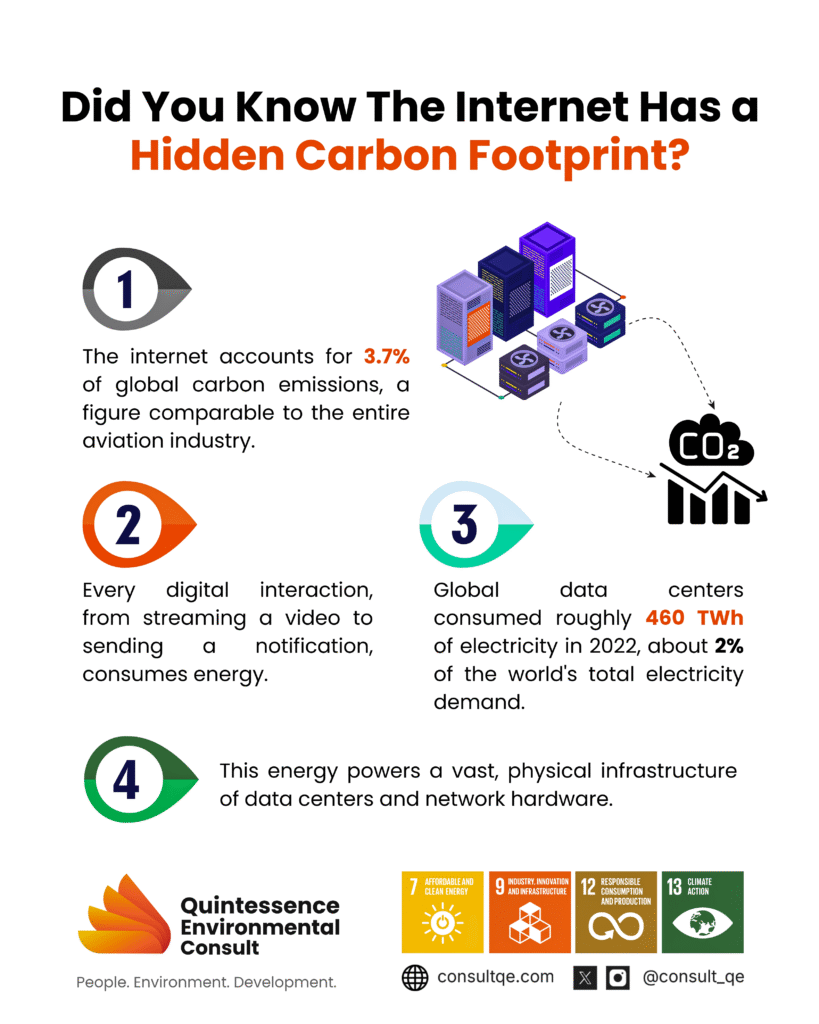Decarbonizing The Nigerian Built Environment Through Engineered Local Materials

INTRODUCTION
The necessity for a shift in the Nigerian construction industry is driven by dual and intersecting crises: the enormous national housing deficit and the growing environmental urgency for sustainability. Rapid urbanization has pushed formal housing costs to extremes, effectively pricing millions of citizens out of the market (11). This crisis is exacerbated by the sector’s persistent reliance on imported, carbon-driven models such as steel & cement production, which are detrimental to low-cost housing goals and increase the nation’s carbon footprint (27). Integrating low-carbon, culturally resonant materials is therefore vital for achieving economic stability, social inclusion, and ecological sustainability
Connected But Costly: The Environmental Footprint Of A Digital World

The global Information Technology (IT) ecosystem is often perceived as a realm of dematerialization, a transition to intangible data streams that leave no physical trace. This perception, however, masks a profound and destructive physical reality. The massive, interconnected infrastructure that supports our digital world, from colossal data centers to specialized Artificial Intelligence (AI) chips, is constructed upon a foundation of intense resource extraction, astronomical energy demand, and persistent environmental debt .
This defines a critical paradox: the very technology designed to connect and advance human civilization is accelerating planetary collapse by becoming a primary driver of biodiversity loss and contamination of soils, waterways, air, and even living organisms through toxic mining waste, chemical leaching, and persistent e-pollutants.
Cultivating Change: Nigeria’s AFOLU Sector as a Cornerstone of Climate Action

The Agriculture, Forestry, and Other Land Use (AFOLU) is a collective term that categorises human activities influencing the movement of greenhouse gases, such as carbon dioxide (CO2), methane (CH4), and nitrous oxide (N2O), between the Earth’s surfaces and the atmosphere. Each time we choose to plant, to build, or which forest or wetland to protect, we’re shaping a global climate equation. This influence ranges from farming and livestock to forestry and the conversion or management of croplands, grasslands, savannas, wetlands, and settlements.
What makes AFOLU both compelling and consequential is its dual role. AFOLU “behaves like a swing”; meaning that, depending on how land is managed within the Agriculture, Forestry, and Other Land Use sector, it can either be a significant source of greenhouse gas emissions (by degrading ecosystems like deforestation) or a carbon sink (by actively planting trees and managing land sustainably), thereby impacting the rate of global warming. The Intergovernmental Panel on Climate Change (IPCC) assessments (2022) show that land use contributes roughly a fifth of total human greenhouse gas emissions.
Yet, the land surface, through forests and soils, also absorbs a significant share of human-generated CO2 (Carbon dioxide) through a process called carbon sequestration, acting as a natural carbon sink . This global swing is not abstract; its fingerprints are visible in everyday Nigeria’s day-to-day land choices.
Zero-Carbon Emission: Your Guide to a Sustainable Digital World

The internet is not as clean as it seems. Every website you visit, every video you stream, and every notification your application sends consumes energy. With 5.56 billion internet users globally [2], the collective environmental impact of digital platforms is staggering. Digital technologies are now responsible for more greenhouse gas emissions than the entire aviation industry. Every time someone visits a website, their browser sends a request to a server, which consumes electricity, often powered by fossil fuels (coal, petroleum and natural gas). While we often think of digital technology as an ethereal and clean resource, it’s powered by a vast, physical infrastructure of servers, data centers, and network hardware that consumes massive amounts of electricity.
Powering a Greener Tomorrow: Highlights from The DinSummit on Nigeria’s Sustainable Future

What if Nigeria could cut its carbon emissions, reduce air pollution, and expand clean energy access all at once? That bold vision took center stage at the 2025 Decarbonizing Infrastructure in Nigeria Summit (DINSUMMIT). With the theme “Unlocking Climate Finance for Sustainable Development,” the summit brought together key players from government, industry, and civil society to accelerate Nigeria’s transition away from carbon-intensive energy sources toward a sustainable, low-carbon economy.
For decades, Nigeria’s infrastructure has relied heavily on diesel and other fossil fuels to power construction, operations, and maintenance, especially in critical facilities like hospitals, schools, and government buildings. This dependency has led to high greenhouse gas (GHG) emissions, degraded air quality, and increased public health risks. To address this, the government, through the Office of the Vice President launched DINSUMMIT as a strategic response to the environmental and economic challenges posed by fossil fuel reliance.
